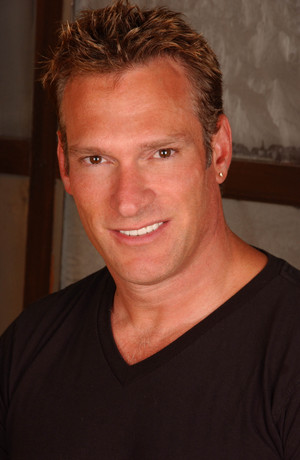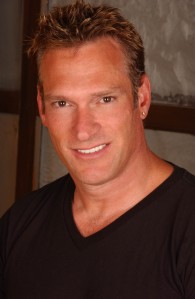
David Merrell founded AOO Events in 1989. As one of the nation’s most respected and sought-after award-winning design and production firms, AOO provides innovative event design, cutting-edge stage and logistics production. The company designs and produces movie premieres, corporate events, private parties and various milestone celebrations throughout the nation and internationally. As a former ISES LA President, Merrell continues his involvement as an industry adviser, expert and advocate. His leadership, achievement and dedication make him a true Mastermind. Continue reading for the details on Merrell’s journey to become an award-winning event designer and producer.
An Interview with David Merrell
Founder, AOO Events
By Paula Estes
Q: Ok, so what steps did you take to get your business started from the beginning?

David Merrell
A: Well, I had only had one event under my belt when I knew that I wanted to actually be on my own. It was about an eight month process from that moment when I was first employed by someone in the same industry as me that I actually made the leap myself.
Since I had been in the business, I’d been in the area marketing for a number of years, so I knew a lot of corporate decision makers, especially in Orange County. That was helpful at least in having a base to go to, to say, “Hey, I’m in business for myself” even though it was a different product.
I also took the opportunity to basically learn as many jobs as I could on the side from my regular job. I did everything from waiting the tables to loading the trucks to make extra money not only learn the business, but to start of my own company. At the same time, I also studied Special Event and Event Solutions magazines to learn everything I could about the business.
When I decided to go out on my own, I had actually saved about $10,000 and started out in an 800 square foot apartment which was my apartment, my office and my warehouse. I started as a caterer and I resold other catering company’s food. So I would buy things wholesale, buy things by the piece, take it out, repackage it, reheat it, put it on my own platters, use my own people and so I didn’t have to deal with the manufacturing part of catering, I was purchasing from others and I had four or five great caterers and small little companies that I worked with and I’d purchase food from them and soon developed a reputation that way. And through those parties and the contacts I made, it began to grow. Soon these clients began asking for flowers then about valet and soon I’m doing tenting and full bands and lighting. I grew into a full event production and this continued for about a year and a half. I was moving relatively fast, to the point where I could actually open my own kitchen. I had enough business, so I partnered with a chef, took the money I saved, even up to that point, and invested in my own kitchen. It took incremental steps. Once I had my own kitchen things really began to take off. I went through a number of places and locations and I eventually moved to LA making the decision to leave Orange County, because LA is where the real money is.
Q: Who were your clients?
A: At that time it was mixed corporate with a number of real estate companies that own large buildings who wanted to do tenant appreciations for 2000 people in their high-rises. It would be hot dogs and hamburgers, but it paid well, even though they were not glamorous events.It went well and I started to develop a social reputation. By the time I was done, I was doing food in high-end homes for a number of Bel Air and Beverly Hills’ socialites and some A-list celebrities. I thought I was on my way.
Then 9/11 hit in 2001 and business seemed to collapse overnight. We all had to make some hard decisions. Looking at everything I had accomplished, I realized that I really didn’t like the food side of the business, but loved the overall coordination and design. So in 2002, I shut down food and just went into decor and design and that’s when it really took off. It was a six month transition and then there was a lot of soul-searching, reinventing myself, repackaging myself, and remarketing myself to where I am today.
Q: And that soul searching….was that triggered by the 9/11 event, or the fact that you knew you were transitioning—making it part of the assessment?
A: Soul searching is part of the assessment of the economic situation we were in similar to 2009. Everyone’s had to look at the last year and a half and go holy crap what am I going to do here? What’s really a priority and what can I cut out? How can I streamline? What happened after 9/11 happened more on the corporate side than the social side because everyone was still getting married and having bar and bat mitzvahs. Corporate America decided that they were not interested in celebrating and it wasn’t appropriate, and everyone was scared. The industry was hurt for a while and we were forced into making difficult decisions. That’s when I realized, after speaking with a really good friend of mine, Ginger Kramer, who owned a catering company up in northern California, that she was going through the same thing and decided I don’t want to be in the food side. She was the one who put me over the top and said, “You just have got to make the decision. Once I made it I said, ‘God why didn’t I do this earlier?’” People who I was competing with…Wolfgang Puck, Along Came Mary, now became my clients. It just opened up many new doors for me within the city.
Q: and since you reallydidn’t enjoy that aspect of the business, it must have been liberating.
A: Actually I really enjoy the overall view. I’ll always be a foodie and I enjoy designing the menu and actually working through the logistics of service and all that stuff. What I don’t enjoy is the production of it. It’s arduous and tedious and it’s, you know health department and all kinds of stuff that I’d rather hire someone to do and just take a fee for managing it than actually dealing with it myself. I just removed myself from the manufacturing process.
Visit the ISES LA Blog Tomorrow for Part II of Mastermind: An Interview with David Merrell.






